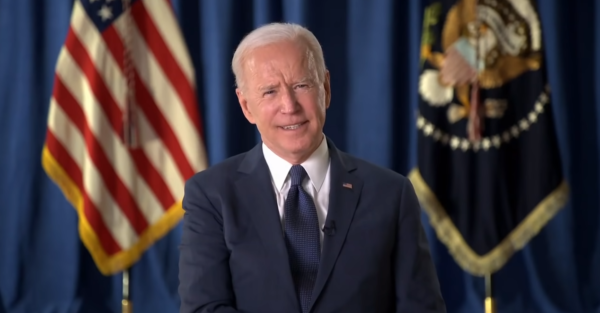
When Joe Biden announced his scheme to reduce violent crime in America, he pointed to Baltimore as an example that could guide federal gun control efforts, but an Op-Ed column posted over the weekend, Cameron Smith observed, “In reality, the city clearly demonstrates that banning “assault weapons” and expanding background checks are solutions that fail to understand the problem.”
Smith is a former executive director of the Republican Policy Committee in the U.S. House of Representatives.
“Baltimore has a significant homicide problem alongside some of the toughest gun laws in the country,” Smith wrote, and unlike the president, his remarks hit the bullseye.
As reported by WBAL, “Baltimore has recorded more than 300 homicides each year for the past six years. So far this year, the number of homicides stands at 162 This year, and it’s on pace to hit at least 300 again.”
The city has also logged “more than 300 non-fatal shootings,” the report said.
This dilemma of high body counts in cities long under liberal control is going to require more than just pushing more gun control, and blame-shifting to neighboring jurisdictions with allegedly looser gun laws.
After all, say grassroots gun rights activists, if the problem was just with firearms, those other jurisdictions would have equally alarming homicide statistics, but they don’t.
Baltimore Mayor Brandon Scott told WBAL, “Sixty-three percent of the weapons recovered last year came from other states. That’s why I partnered with Everytown for Gun Safety and my police department to have a firearms intelligence unit and work with our great partners with (the Bureau of Alcohol, Tobacco, Firearms and Explosives) to hunt down these traffickers.”
Going after genuine criminals is preferable to taking sanctions against law-abiding gun owners, pro-gunners tend to agree. But that hasn’t been the pattern, at least among anti-gun politicians from mayors all the way up to Biden. According to a new video featuring journalist John Stossel interviewing Alan Gottlieb, chairman of the Citizens Committee for the Right to Keep and Bear Arms, there is some evidence that more armed citizens coincides with a decline in crime.
Of municipalities where gun control is a demonstrable failure, Seattle may be the best example. This requires a history lesson.
In 2014, Washington voters approved Initiative 594, a measure requiring so-called “universal background checks” with some exemptions for immediate family members. The campaign was bankrolled by a billionaire-backed gun prohibition lobbying group calling itself the Alliance for Gun Responsibility, based in Seattle. The measure was sold as a tool to reduce gun-related homicides. The Alliance spent more than $10 million to get their measure passed by just under 60 percent, even though they claimed during the campaign that 80-90 percent of voters supported the initiative.
In 2014, Seattle logged 23 slayings.
In 2015, the Seattle City Council hastily adopted a special tax on the sale of guns and ammunition. Funds were going to finance efforts to reduce so-called “gun violence.” Proponents, led by former Councilman Tim Burgess, predicted the tax revenue would range between $300,000 and $500,000 annually, which became a sales pitch for adoption.
In 2015—the first full year following adoption of I-594—there were 26 murders in the city.
In 2016, the gun and ammunition tax brought in a disappointing $103,766.22, far below the estimate. That year, the number of homicides dropped in the city to 18, but that didn’t last.
The following year, the gun tax brought in $93,220.74 and the city logged 27 murders.
In 2018, the Seattle-based gun prohibition group bankrolled another initiative—an “assault weapon” package known as Initiative 1639—for which a few more million was spent to pass it. This one prohibits anyone under age 21 from purchasing or owning a so-called “semiautomatic assault rifle,” for which the definition applies to every semi-auto rifle ever manufactured on Earth, regardless of caliber or design cosmetics. That year, with its gun tax collecting a dismal $77,518, Seattle posted 32 murders, according to the most recent Seattle Police data.
Jump to 2019, the gun tax brought in $85,352 and Seattle police posted 37 homicides on their crime dashboard.
Last year, with gun and ammunition sales soaring in Seattle as well as across the country, the gun tax brought in $184,836 and the city recorded 52 homicides.
So far this year, according to the Twitter site Seattle Homicide, there have been 22 slayings in the city including one Monday night, and the year is not officially half over until midnight Wednesday.
Smith’s Op-Ed about Baltimore contains some interesting points, which might apply in a lot of cities.